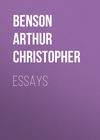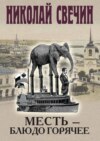Читать книгу: «Essays», страница 14
In the bleak mid-winter
Frosty wind made moan,
Earth stood hard as iron,
Water like a stone;
Snow had fallen, snow on snow,
Snow on snow,
In the bleak mid-winter,
Long ago.
Our God, Heaven cannot hold Him,
Nor earth sustain;
Heaven and earth shall flee away,
When He comes to reign.
In the bleak mid-winter
A stable-place sufficed
The Lord God Almighty,
Jesus Christ.
Enough for Him whom cherubim
Worship night and day,
A breastful of milk
And a mangerful of hay.
Enough for Him whom angels
Fall down before,
The ox and ass and camel
Which adore.
Angels and archangels
May have gathered there,
Cherubim and seraphim
Throng'd the air,
But only His mother,
In her maiden bliss.
Worshipped the Beloved
With a kiss.
What can I give Him,
Poor as I am?
If I were a shepherd,
I would bring a lamb.
If I were a wise man,
I would do my part;
Yet what can I give Him?
Give my heart.
which, from beginning to end, has the very note of a Tuscan Adoration.
This exquisite felicity did not continue. It could not be expected that it should. Miss Rossetti had always been capable in her writings of complete and unexpected failures; in many of her lyrics everything is there – style, feeling, harmony, but somehow the mood does not quicken into poetry. In later life she published an immense volume, the Face of the Deep, extending to over 550 pages, a devotional commentary on the "Apocalypse." This is written in uncouth and shapeless prose, as a rule; and though it has many suggestive and striking thoughts, and some images of exquisite beauty, yet it is a singular monument of failure. Scattered up and down in it are several hundred religious lyrics, which are never exactly commonplace, but seldom satisfactory. I venture to quote one, which may serve as a fair sample, p. 119, chap. iii. v. 10:
Wisest of sparrows, that sparrow which sitteth alone
Perched on the housetop, its own upper chamber, for nest.
Wisest of swallows, that swallow which timely hath flown
Over the turbulent sea to the land of its rest;
Wisest of sparrows and swallows, if I were as wise!
Wisest of spirits, that spirit which dwelleth apart,
Hid in the Presence of God for a chapel and nest,
Sending a wish and a will and a passionate heart
Over the eddy of life to that Presence in rest,
Seated alone and in peace till God bids it arise.
One word must, perhaps, be said here on the question of her technical skill and metrical handling. With characteristic humility, she was herself of opinion, as appears from a letter to Mr. Gosse, that the inspiration of her sonnets was wholly derived from her brother. That was an entire, if affectionate, mistake. There is no real or even apparent connection. There is none of the intricate scheming, the subtle inter-weaving of tremulous tones which make D. G. Rossetti's sonnets the most musical of English sonnets. But the consequence is that Dante Gabriel's sonnets are not in the least characteristically English. The sonnets of Milton and Wordsworth may be regarded as the true examples of English sonnet-writing, stiff, grave, sober, drawing through precise and even stilted metres to a sonorous and rhetorical close. D. G. Rossetti's are exotic work essentially. But that is not true of Miss Rossetti's. They are simple and severe. In such a sequence as "Monna Innominata," there is not a trace of the luscious and labyrinthine ecstacies of her brother's work; they are indeed far more like Mrs. Browning's Sonnets from the Portuguese.
Trust me, I have not earned your dear rebuke;
I love, as you would have me, God the most;
Would lose not Him, but you, must one be lost;
Nor with Lot's wife cast back a faithless look,
Unready to forego what I forsook.
This say I, having counted up the cost.
This, though I be the feeblest of God's host,
The sorriest sheep Christ shepherds with His crook.
Yet while I love my God the most, I deem
That I can never love you overmuch;
I love Him more, so let me love you too;
Yea, as I apprehend it, love is such,
I cannot love you if I love not Him,
I cannot love Him if I love not you.
This severity is not the same in her lyrics; it will be obvious from the specimens already quoted, that, if anything, the metrical scheme is not strict enough. In many lines will be found a deficiency of syllables, musically compensated for by variety of accent; many of her rhymes are almost licentious in their vagueness. But for some reason I have found that they do not offend the critical judgment, as Mrs. Browning's do. Whether it is that the directness and simplicity of the feeling overpowers all minute fastidiousness, or whether they are all part of the careful artlessness of the mood, is hard to determine. But the fact remains, that none but the most inquisitive of critics would be likely to hold that the art is thereby vitiated.
Lastly, of all the great themes with which Miss Rossetti deals, she is, above all writers, the singer of Death. Whether as the eternal home-coming, or the quiet relief after the intolerable restlessness of the world, or as the deep reality in which the fretful vanities of life are merged, it is always in view, as the dark majestic portal to which the weary road winds at last. True, in one of the earliest and most beautiful of all her lyrics, the sense of dissatisfied loneliness is carried on beyond the gate of Death.
AT HOME
When I was dead, my spirit turned
To seek the much-frequented house;
I passed the door, and saw my friends
Feasting beneath green orange boughs;
From hand to hand they pushed the wine,
They sucked the pulp of plum and peach;
They sang, they jested, and they laughed,
For each was loved of each.
I listened to their honest chat.
Said one: "To-morrow we shall be
Plod, plod along the featureless sands,
And coasting miles and miles of sea."
Said one: "Before the turn of tide,
We will achieve the eyrie-seat."
Said one; "To-morrow shall be like
To-day, but much more sweet."
"To-morrow," said they, strong with hope.
And dwelt upon the pleasant way.
"To-morrow," cried they one and all,
While no one spoke of yesterday.
Their life stood full at blessed noon;
I, only I, had passed away.
"To-morrow and to-day," they cried;
I was of yesterday.
I shivered comfortless, but cast
No chill across the tablecloth;
I all-forgotten shivered, sad
To stay and yet to part how loth.
I passed from the familiar room,
I, who from love had passed away.
Like the remembrance of a guest
That tarrieth but a day.
But, if we can but read into it the hallowing radiance of a tremulous hope, the poem, which as Ellen Alleyne she contributed to the Germ in the days of her unregenerate energies, may be her requiem now:
DREAM LAND
Where sunless rivers weep
Their waves into the deep,
She sleeps a charmed sleep
Awake her not.
Led by a single star.
She came from very far
To seek where shadows are
Her pleasant lot.
She left the rosy morn,
She left the fields of corn.
For twilight cold and lorn
And water springs.
Through sleep, as through a veil,
She sees the sky look pale,
And hears the nightingale
That sadly sings.
Rest, rest, a perfect rest
Shed over brow and breast;
Her face is toward the west,
The purple land.
She cannot see the grain
Ripening on hill and plain;
She cannot feel the rain
Upon her hand.
Rest, rest, for evermore
Upon a mossy shore;
Rest, rest, at the heart's core
Till time shall cease.
Sleep that no pain shall wake;
Night that no morn shall break
Till joy shall overtake
Her perfect peace.
1895.
THE POETRY OF EDMUND GOSSE
IT happened the other day, in the library of a remote house, that I lighted upon a shelf of old Blackwoods, from fifty to sixty years old, and, being confined to the house by wet weather, read largely in them. Christopher North was at his glory then, with his flagrant egotism and stupid bellowings. But what struck me most in the old pages was that, with all his loud Philistinism, he was penetrated with a profound respect for poetry. It is hardly too much to say that poetry was the staple product of the magazine. Almost every number contained long, nightmare poems in Cowperian blank verse by Delta or some other tedious unknown. Mrs. Hemans fluted monotonously. Almost every number, too, contained an article of poetical criticism; even the terrible Noctes Ambrosianæ are full of low verses. All this contrasted sharply, I will not say painfully, with modern tendencies. I do not think we are less wanting in respect for really great poetry now, but there is a large class of persons writing verses now which for feeling, expression, and execution beat Delta and Christopher North's favourites out of the field. At the same time, the minor poet is the perennial gibe of the journalist, who would have us believe that the only audience that exists for these amiable singers are themselves. And this is not impossibly the case. But all who take a serious and hopeful view of literature will believe that there are shadowy instincts in the human heart which even journalism cannot satisfy, and the large class of persons – youthful, perhaps, and, as Praed says, "so thankful for illusion" – which the earth is constantly producing, will continue to be grateful to any one who "from the soul speaks instant to the soul."
But between the greater and the lesser lights there are a few living poets who, without captivating an unwilling public, have, at least, extorted a recognition from it: those gentlemen whom the Westminster Budget not long ago represented in a genial caricature as trying the effect of a laurel wreath on their more or less scanty locks before a mirror. And one of these was Mr. Gosse. His poetical work extends over a period of some five-and-twenty years. His first book, On Viol and Flute, written when the author was hardly out of his teens, was instantly welcomed by the critics as an offshoot of the Rossetti school, but untainted by any of the uncomfortable irregularities of that fellowship. Since then he has produced New Poems; Firdausi in Exile and Other Poems; King Erik, a literary tragedy; while, last of all, there appeared, in 1894, a volume entitled In Russet and Silver. This essay will treat exclusively of Mr. Gosse's poetical work, although the present writer may freely confess his conviction that Mr. Gosse's true vehicle, in which he works more spontaneously, is melodious and amusing prose.
The first point that strikes any careful and critical reader of the volumes I have mentioned is the steady and virile progress that the art of the writer compasses. On Viol and Flute was a graceful, tender volume, of sensuous and picturesque, but essentially superficial verse. In New Poems a certain philosophy, epicurean in tone, began to shape itself. In Firdausi in Exile there is a strong and manly note audible. Finally, in In Russet and Silver the tumultuous impulse is over, and the poet looks out with a serious resignation backwards over a life of genial effort and happy love, and forwards over a gentle sunset slope. King Erik lies apart from the rest, and will be considered separately.
In Mr. Gosse's graceful ode, "The Gifts of the Muses," the goddesses of song take away from Daphnis his beechwood flute and give him an ivory lyre, with which, at the cost of secret sorrow, he charms the ears of the world. But his last prayer to Apollo is that he may have his flute again before he dies. Mr. Gosse is like Daphnis in his preference for the homely flute. The ivory lyre, "the sorrowful great gift," as Mrs. Browning calls it, he has not chosen. His graceful, melodious verse, flawless in construction, delicate in form, does not anywhere show signs of passionate conviction or imperious stress; it has none of the "perilous stuff that weighs upon the heart." Intensity there is, but it is the intensity of enjoyment; Mr. Gosse's poems are full of the spirit of the sunlit wood, the breezy headland, the fragrant garden-walks at dusk; they are full of the cheerful felicity that plays about the wholesome energies of life, the happy love of wife and child, inspiriting talk, leisurely sessions in warm orchards, or libraries full of books. Mr. Gosse has the active love of nature intensified by the confinement of town life. He has inherited the eager instinct of the naturalist, and his studies of woodland things are produced with the eye on the object, or, better still, from loving and accurate recollection. There is nothing vague in his transcripts from sea or wood: the broken imitative music of the white-throat, the yellow water-lily stealing up to daylight through the dim pool, the beetle with his jewelled wing-cases, the bright crest of the swooping wood-chat, the whispering of the rain upon the leaves, the mist flooding the orchard, all these are touched with that swift intuition which comes from patient watchfulness.
Mr. Gosse's muse is fond of masquerading – and she does it very gracefully, too – in a classical dress. In such poems as the "Suppliant" he catches the very spirit, the unadorned sweetness, of the Greek Anthology. But this classical flavour belongs essentially to his earlier work. Mr. Gosse has within himself the untainted Greek spirit, and has grown to feel more and more, I venture to believe, that there is no need to shift his readers to an earlier age and a sunnier scenery: that the ardent natural sense of enjoyment, without morbidity even in its sadness, which is the essence of Greek feeling, needs no setting to declare itself. It can exist in London smoke, on the promontory with its short turf, in the Devonshire orchard. If this be so, the instinct which has led him gradually to abjure the earlier forms is a true one.
Of the poems which have a philosophical motive – not a numerous class – we may take "Verdleigh Coppice" (New Poems, p. 74) as a type. It is a sensitive description of the horror that creeps over even the most thoughtless heart on realising that below the surface of nature in her most peaceful moods lies a whole world of death and strife. But this leads to no Puritan or melancholy conclusion. "I learn," he says, in the exquisite stanza with which the poem concludes,
I learn 'tis best in all things to hold living very lightly,
Taste the perfumes of the fir-wood, but not linger there
too long,
Lest the mazes of the forest lead to foulnesses unsightly,
And a haunting horror clash upon the night-bird's liquid
song.
Mr. Gosse's latest volume, In Russet and Silver, shows, as we have said, the true and gentle development of this happy philosophy. From end to end it breathes the genial resignation of one who feels a happy youth depart with promise of calm and gracious hours to come. But at the same time, as far as poetical power goes, it is incomparably stronger than any of the author's previous work. The noble dedication to "Tusitala in Vailima" (Mr. R. L. Stevenson in Samoa) is the high-water mark of Mr. Gosse's genius. The haunting melody of this poem, its serene and equable sweep, exalt the writer among his contemporaries; although for ardent feeling and pure workmanship the idyll entitled "A Tragedy without Words" ranks nearly as high.
But we must pass to the technical consideration of Mr. Gosse's art.
In the first place, he is singularly free from mannerism, and his style has clarified itself every year. It would be difficult for the most ingenious imitator to produce a poem which should be indisputably in Mr. Gosse's manner. There is an equable lucidity about his expression; it is never necessary to pause in order to adjust the sense of a passage. Robert Browning, perhaps, of contemporary poets, presents the most acute contrast to Mr. Gosse. Browning's style may be compared to a Swiss pasture, where the green meadows which form the foreground of a sublime landscape are yet cumbered with awkward blocks and boulders – things not without a certain rough dignity of their own, but essentially out of place. Mr. Gosse's poems, on the other hand, are like trim meadow-lands, with wealth of wood and water, where the pilgrim can linger without fear of obstacles or catastrophes.
Another salient characteristic of Mr. Gosse is the entire absence of errors of taste. There is nothing that can jar on the most sensitive reader either in feeling or expression; and in this he may be called somewhat of a reactionary when compared with the tendency of much modern poetry. There is, moreover, a sweetness and simplicity about his handling both of metre and rhyme which never degenerates into commonplace, and yet is never affected. The only trace of affectation, indeed, is in a certain dabbling, in earlier work, with names of jewels such as "chrysoprase," and plants such as "euphrasy" and "agrimony." It may be doubted whether such names – for the introduction of which into our poetry Mrs. Browning is largely responsible – ever succeed in giving true or accurate vividness to a picture, for the simple reason that most readers, and, we fear, many writers, have no idea what jewel or flower is intended.
Lastly, in the difficult matter of epithets Mr. Gosse is a master. Nowadays, when all ordinary combinations of adjectives and nouns have been employed in poetry, the poet must give special attention to epithets which shall arrest and please, shall be, in fact, almost paradoxical at first sight, yet shall justify themselves on examination. And here Mr. Gosse is singularly successful; without multiplying instances, let any reader judicially examine the two poems mentioned above, in In Russet and Silver, where experiment in epithet is carried to the verge of daring, and say whether the adjectives do not drop into their places in a predestined fashion, like the swans which Virgil describes settling in the marsh: – "Aut capere, aut captas jam despectare videntur."
It will be as well to give a few phrases and expressions, taken at random from the various volumes, to illustrate the elaborate felicity of phrase and epithet which are characteristic of the patient art of Mr. Gosse. We have the "boisterous bee," the "velvet darkness of the pines," the "horizon's primrose bar," the "night and her innumerable eyes" the "hushed elbow of the reedy leas" where the heron finds peace, the "bales of solid sleep" in which the opium is packed, the loadstone cliff at which "the fluttering magnets leap with lying poles," the "tight curls closing like the marigold," of the young athlete, the eye of the woodman that flickers "keen as the flashing of a snipe through beds of windless rushes." The poet passes the charcoal-burner's hut and says: "I love to watch the pale blue spire His scented labour builds above it." In the June garden he notes "how spring and summer flowers arrange Their aromatic interchange." He hears "the small hushed cry of crisp dry life The terebinth gives beneath the graver's knife." To the pushing iris he cries, "What news from hollow worlds beneath?" He sees, on a Provençal coast, "Where now the prickly cactus gibes and crawls Down towards cold waves from firm rock-battlements." He watches the expiring light: "As ceases in a lamp at break of day The fragrant remnant of memorial flame." He hears in passing "Joybells of some exuberant town at play." He indicates in a stroke of rare insight the characteristic failure of the melancholy Obermann, his "high lassitude," and for a delicate simile what could be more perfect than the following: —
As on the pale white peacock we discern
The pencilled shadows of the rainbow dyes
And coloured moons that on her sisters burn.
All this is the purest literary workmanship. There is nothing of the impressionist here. There is no dim vagueness, but the effect is noted and carefully transferred to words of infinite associations. The possible weakness of this delicate minuteness is that here and there in a moment of strenuous action, when the march of the poem ought to proceed with swift directness, the glancing eye is apt to turn aside or lose itself in detail. One small instance will be enough of a tendency that is as a rule successfully combated. In the "Cruise of the Rover," in the heat of movement, when the young English sailors after their desperate fight are being dragged to judgment, drink is given them from "a great cool earthen firkin." Now this is just such a detail as no one at such a moment should have had leisure or inclination to note, and this is the fault of the literary method. In meditative poems, in transcripts from nature, the more sensitive the eye is to external impressions the more intimate and lucid will the emotion be. But not in the ballad, not in the poem of action and life. And this is true of such narratives as the "Island of the Blest" and the "Death of Arnkel," where detail is almost too tyrannous, closely and vividly sketched as it is.
In the former poem such descriptions as that of the Island itself may be noted for their proportion: —
And now beneath the magic Isle we came:
Full of fair havens was it, blue and wide
With iron promontories, fit to tame
The wildest storm and make a calm inside,
Where gentlest birds might plume themselves and ride.
White cities nestled under every hill,
Stretching their marble feet to touch the tide,
And shallops driven by more than mortal skill
Meandered here and there, or cleft the wave at will.
Down coverts, thick with cedar and with pine,
Sonorous waters dropt their silver shafts.
This is the perfection of stately narrative. But when the mariners are led away for trial in "quaint procession" and "bound three by three in chaplets of wild rose," we pass into a region of whimsical fantasy, into which a true narrative poet like William Morris has no tendency to err.
Firdausi in Exile is a story well told, and is the best narrative poem by Mr. Gosse. Yet even this leaves us convinced that he is pre-eminently a lyric poet, the singer of a swift and passing mood; he has none of the sustained energy of the epic poet, nor the penetrating psychology of the dramatist.
The tragedy of King Erik, as Mr. Theodore Watts points out in the admirable critical note which is prefixed to the later edition, is not an acting play; the essence of an acting play is that it should pass firmly from situation to situation. But there is a further defect than even that. From a literary point of view, the images, the metre, the language are skilfully enough handled but the characters lack consistent vitality. King Erik passes from being an elevated, almost superior philosopher into an outrageous Othello, in a manner which, though possibly lifelike, is inconsistent with the dignity of his professions; he is not sincere in his utterances, if his jealousy is so easily awakened and so hardly allayed. And there is a similar want of humanity in many of the characters. Botilda is too mild and tactless, Grimur too amorous, Adalbjörg too venomous. They do not seem to betray their characters so much as to be always keeping them in view. But after all, if Mr. Gosse's dramatic muse is too statuesque, why so are Mr. Swinburne's and Mr. Bridges', and the literary instinct can extract a continuous pleasure from the mellow sequence of line upon line.
As a specimen of pictorial art, fading softly into visionary dreams, we would select a very perfect lyric from Mr. Gosse's latest book entitled "Circling Fancies." The poet sits at night by the open window, under the acacia which scents the air, with a lighted lamp, to which the gauzy summer flies come thronging.
Around this tree the floating flies
Weave their mysterious webs of light;
The scent of my acacia lies
Within the circle of their flight:
They never perch, nor drop from sight,
But, flashing, wheel in curves of air,
As if the perfume's warm delight
In magic bondage held them there.
I watch them till I half confound
Their motions with these thoughts of mine,
That no less subtle bonds have bound
Within a viewless ring divine;
Clasped by a chain that makes no sign.
My hopes and wheeling fancies live:
Desires, like odours, still confine
The heart that else were fugitive.
The poem of "Tusitala" records Mr. Gosse's first meeting with Mr. R. L. Stevenson, four-and-twenty years ago, on a Scotch steamer. He goes on to speak of the novelist's growing fame, the train of suffering that conducted him to glory, his exile in the "ethereal musky highlands" of Samoa, "till," he says, "we almost deem'd you vanished."
Vanish'd? ay, that's still the trouble,
Tusitala!
Though your tropic isle rejoices,
'Tis to us an Isle of Voices
Hollow like the elfin double
Cry of disembodied echoes,
Or an owlet's wicked laughter,
Or the cold and hornèd gecko's
Croaking from a ruined rafter, —
* * * *
You are circled, as by magic,
In a surf-built palmy bubble,
Tusitala;
Fate hath chosen, but the choice is
Half delectable, half tragic,
For we hear you speak, like Moses,
And we greet you back enchanted,
But reply's no sooner granted
Then the rifted cloudland closes.
But the poem must be read in its entirety to give an idea of the delicate melody, the haunting pathos of the strain. It is a poem above praise.
Classification in poetry is a fruitless task, and it is impossible to do a poet a greater wrong than unnecessarily to seal him of a certain tribe; he must be sui generis; many writers can imitate with singular felicity; Owen Meredith wrote lines which, if they had been written by Tennyson, would have been reckoned among his sweetest, but they were Owen Meredith and not Tennyson. So Mr. Stevenson in prose is responsible for a knot of ventriloquists who seem to speak with the authentic voice; the hands are the hands of Esau and the utterance is only not Esau's too.
Mr. Gosse is an obsequious follower of none. He has little in common with our pre-eminent lyric lord, Mr. Swinburne; Mr. Swinburne is a rhapsodist, who has made such stately and exhaustive use of the rare dactylic element in English that it is hard to see how any dactylic poetry should in future be cast in any different mould. Mr. Morris is raconteur first; his ancient tales create their form, and ornament is accessory to narrative. These are the two great planets of our firmament, but there are other stars of brilliant and individual fire.
Mr. Austin Dobson is the soul of exquisite finesse, but the fine, careless rapture he does not claim. Mr. Kipling comes like an explorer laden with strange spoils from an unvisited land, but whether any one may tread in his footsteps is uncertain; it is uncertain, too, whether he has triumphed over or through his environment, and Mr. Gosse has little in common, save his generous admiration, with a poet starred and crowned with gems that all the world before him had conspired to cheapen. Mr. Stevenson, in poetic quality among the greatest, is reticent and will not speak – poignant sincerity is perhaps his most moving characteristic; Mr. Patmore strikes an old, full-flavoured note, in the region of happy homely courtesies – though in the "Unknown Eros" he has once or twice fused the precision of George Herbert with the dignity of Gray. But Mr. Gosse, the Epicurean in the House, would haunt the library rather than the dining-room.
Mr. George Meredith in his gorgeous lyrics strikes the nail too often and too hard, until he dints the panelling. Could he only hold his hand! On any given subject he will breed you a round dozen of stanzas, large and over-ripe, to one more acid berry. Mr. Bridges, the sober, majestic lyrist, with his grave russet effects, his almost stilted dignity, is the one writer, next to the two fixed stars, to whom we are disposed to give unstinted praise for his solemn reticence, his strong, full music; and to him Mr. Gosse must yield the palm in verse; Mr. Bridges has behind him the force of woodland seclusion and the unique devotion of a strong spirit to a slender art, while Mr. Gosse has social claims, artistic and literary criticism, poetical and historical exegesis, and almost unrivalled biographical gifts to drain his spirit. Mr. Watson in his best poetical work is the sublimation of the philosophical critic of poets. For Matthew Arnold, Shelley, Tennyson, Wordsworth, he has done, we think, what Milton did for "Lycidas," and it is impossible to believe that such cool and spacious writing can ever be superseded. Mr. Austin, like Mr. Gosse, is penetrated with Virgil's "inglorious passion for stream and wood." Mr. Aubrey de Vere is the poet of secluded grace, monastic thrills; Lord De Tabley goes to and fro, like Circe, before his stately loom: Mr. Lang is as his own porcelain, foam frozen into crystal. Among younger writers, Mr. Le Gallienne has the elfish voice of a spirit, airy, whimsical, but full of rapturous phrases; Mr. Yeats the eerie wailing of the winds in a haunted Celtic twilight; yet of these two, so essentially spiritual, it is hard to predict anything – like the wind, their prototype, they blow whither and whence they will. But these both are, so to speak, on the tree-tops, while Mr. Gosse treads the earth. Mr. Henley, again, in some of his vehement, rough lyrics, reaches a poignant fervour of which our graceful bard knows nothing. Lastly, among the undoubted chiefs of song, must be mentioned Miss Rossetti, with whose tender, remorseful, almost conventual outlook Mr. Gosse has no common fibre. No greater contrast could indeed be devised, for Miss Rossetti is at heart a dévote and Mr. Gosse a pagan.
It is hard to speak of Mr. Gosse only as a poet without reference to his prose writings, where, indeed, he displays even a more subtle mastery of his art. But we should characterise him as a delicate, impassioned singer of some of the sweetest moods of life. In the fiercer and darker regions of the soul he does not love to linger; in his passion he is, so to speak, anchored safely to life – he is not whirled away in the eddies of elemental seas, with the wild energy that we see, for instance, in Charlotte Brontë's work. In the utmost abandonment of love or sorrow he is conscious of the red moon in the poplar, and the subtle scent of briar and honeysuckle; his feet are on the earth, and almost the deepest pang that he feels is when his jaded senses refuse to respond to the thrill that earth and sky are wont to awaken in him. With man in the abstract he has little sympathy; in the individual the keenest and most intimate delight. He is not the poet of movements; he has no wish to transcribe in verse the economical solutions of poverty. And, lastly, he resolutely lives in a region of sensuous, though pure, delight; he turns aside into the glade when the tainted air warns him that he is near some difficult horror on which he would not gaze. He has none of the impulse of the philosophers to see life steadily and see it whole, and if there is any note of timidity in the poems, we should ascribe it to the author having shunned, or rather missed, the descent into hell which we are inclined to believe necessary for the highest artistic development. Each poet, each man, has his own hell, in which some brief sojourn is necessary if he is to test the seriousness of life and art. Mr. Gosse gives us no hint that this article is included in his creed; we cannot wish that he should be forced to include it, but we say that it is the conscious lack of this experience alone which has kept him from laying claim to the highest glories of song. Delicacy rather than intensity, that is the keynote of his lyrics.































